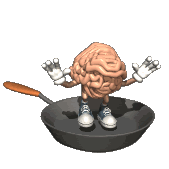
While we don't agree with Thomas Szasz that mental illness is a myth, we applaud his stance on human freedom and dignity. We were pleased to see him expose misdeeds of NAMI here:
The National Alliance for the Mentally Ill
"The NAMI web site describes the organization as follows: "NAMI is dedicated to the eradication of mental illnesses and to the improvement of the quality of life of all whose lives are affected by these diseases. ... Founded in 1979, NAMI has more than 210,000 members who seek equitable services for people with severe mental illnesses, which are known to be physical brain disorders. ... In addition to 1,200 state and local affiliates in the United States, NAMI has affiliates in the District of Columbia, Puerto Rico, Canada, and American Samoa, and has helped start sister organizations in Australia, Japan, and the Ukraine."
The NAMI rhetoric conceals that the organization is composed of, and controlled by, principally the relatives of so-called mentally ill persons and that its main purpose is to justify depriving such persons of liberty in the name of mental health. So convinced is NAMI of the nobility of its cause, that its web site offers this scenario:
Sometime, during the course of your loved one's illness, you may need the police. By preparing now, before you need help, you can make the day you need help go much more smoothly. ... It is often difficult to get 911 to respond to your calls if you need someone to come & take your MI relation to a hospital emergency room (ER). They may not believe that you really need help. And if they do send the police, the police are often reluctant to take someone for involuntary commitment. That is because cops are concerned about liability. ... When calling 911, the best way to get quick action is to say, "Violent EDP," or "Suicidal EDP." EDP stands for Emotionally Disturbed Person. This shows the operator that you know what you're talking about. Describe the danger very specifically. "He's a danger to himself "is not as good as "This morning my son said he was going to jump off the roof." ... Also, give past history of violence. This is especially important if the person is not acting up. ... When the police come, they need compelling evidence that the person is a danger to self or others before they can involuntarily take him or her to the ER for evaluation. ... Realize that you & the cops are at cross purposes. You want them to take someone to the hospital. They don't want to do it. ... Say, "Officer, I understand your reluctance. Let me spell out for you the problems & the danger. ...While AMI / FAMI is not suggesting you do this, the fact is that some families have learned to "turn over the furniture" before calling the police. Many police require individuals with neurobiological disorders to be imminently dangerous before treating the person against their will. If the police see furniture disturbed they will usually conclude that the person is imminently dangerous."
Deliberately giving false information to the police is a felony. Except, it seems, when the falsehood serves the avowed aim of providing mental health treatment for a "loved one."
Read the rest here





